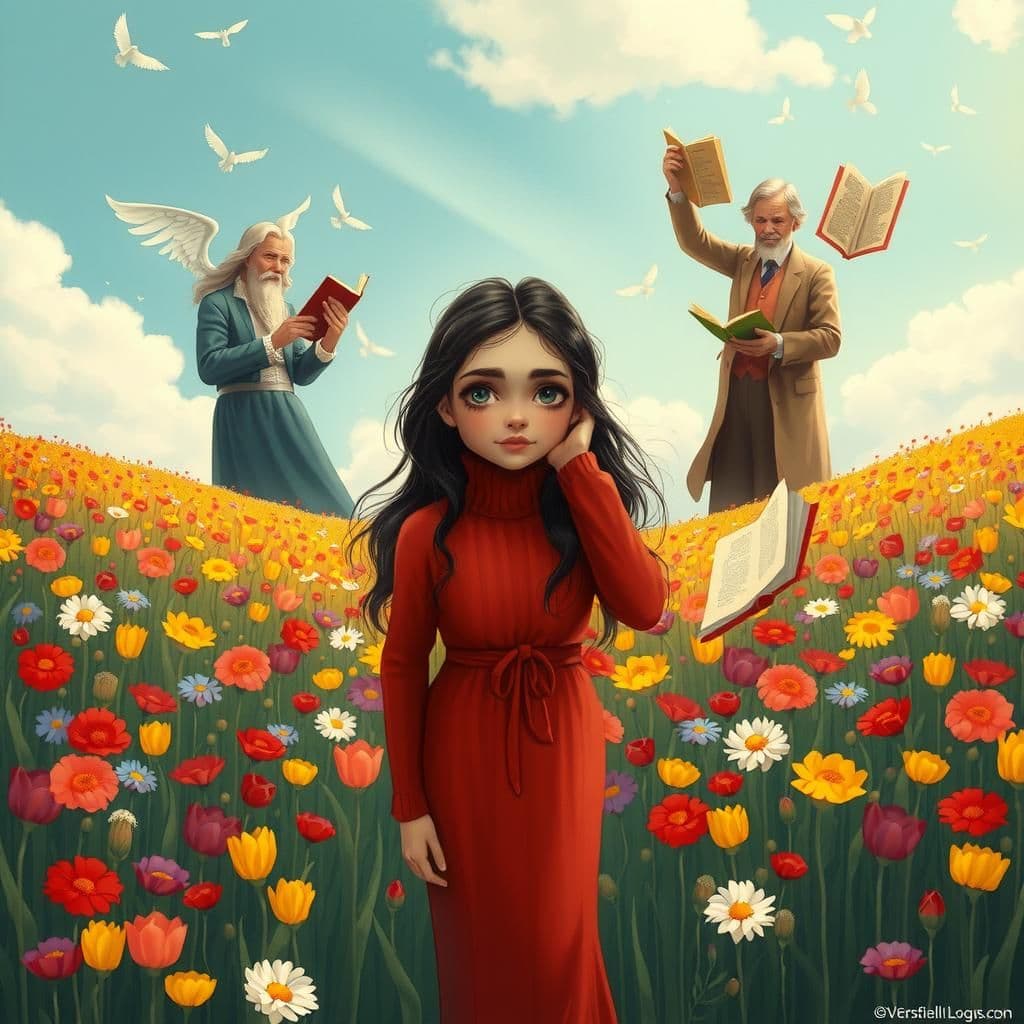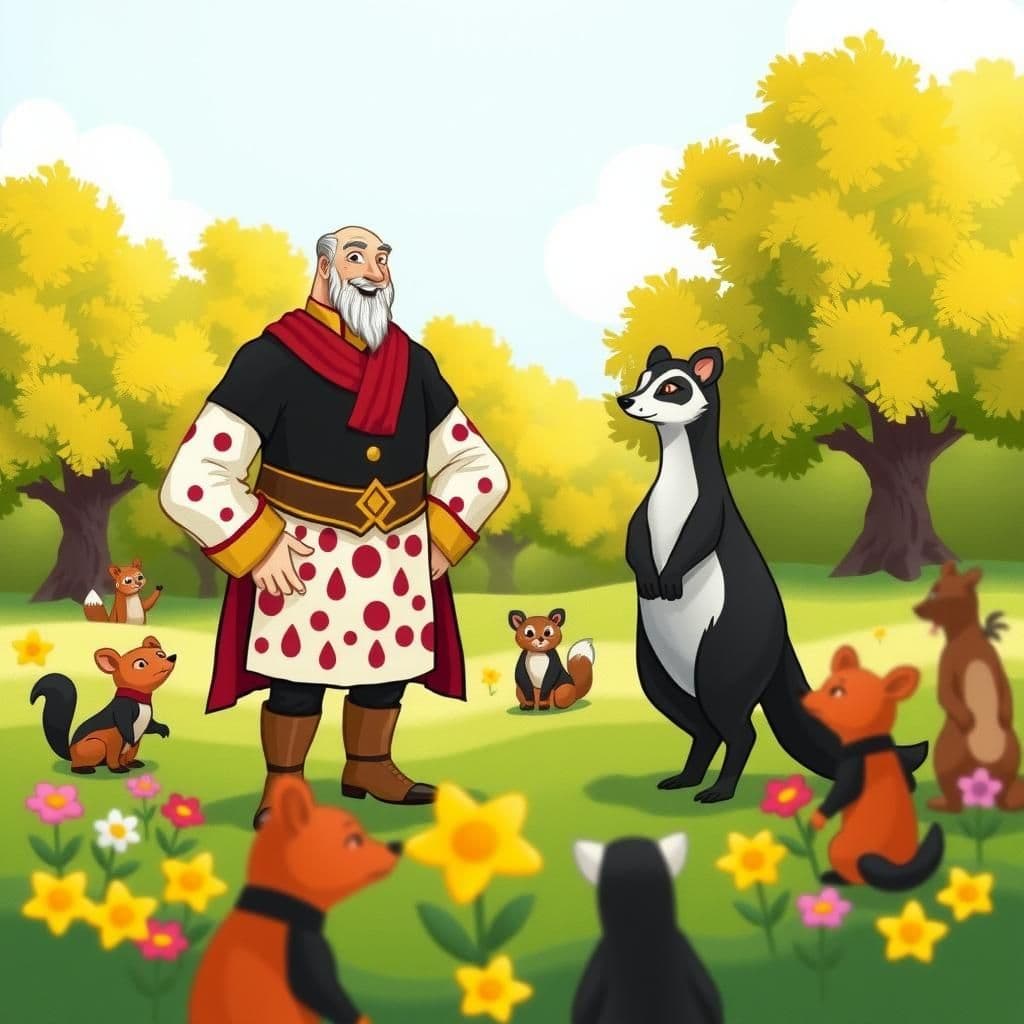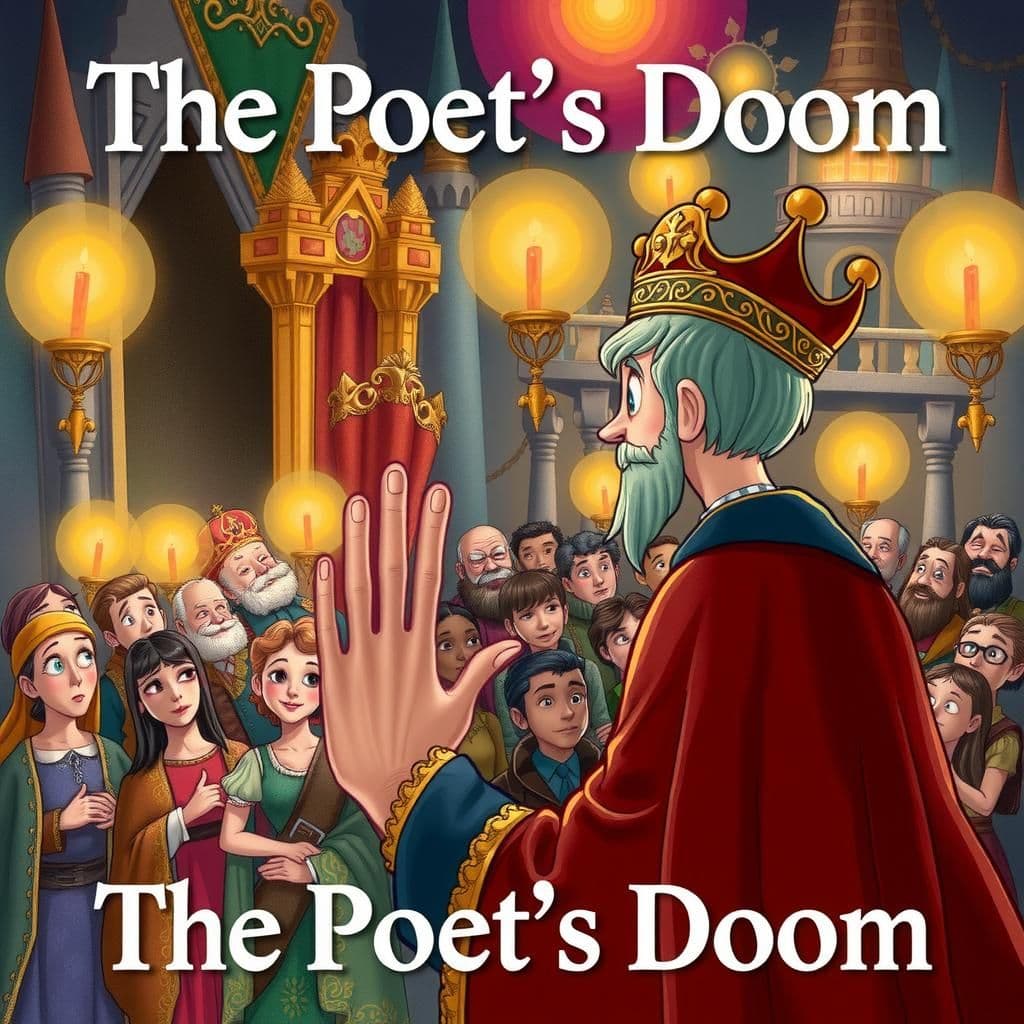The Poetess of Reform

Story Summary
In "The Poetess of Reform," a determined newcomer named Shade arrives in the Elysian fields, expecting an eternity of honor and glory after her struggles as a poet on Earth. However, instead of the joy she anticipated, she finds herself longing for the gloom of her past, unable to recall her own poems while surrounded by the incessant self-quotations of celebrated writers. This short and sweet moral story highlights the challenges of identity and the search for fulfillment, reminding young readers that true happiness may lie in embracing one’s own journey rather than seeking external validation.
Click to reveal the moral of the story
The story illustrates that true fulfillment comes not from recognition or glory, but from the ability to express and share one's own voice and creations.
Historical Context
This story draws on classical mythological themes, particularly the Elysian Fields from ancient Greek mythology, where the souls of the virtuous reside after death. The narrative satirizes the literary world and the often unrecognized contributions of women writers by presenting a fictional Poetess of Reform, whose struggle for recognition mirrors historical challenges faced by female authors throughout literature, such as those depicted in Virginia Woolf's "A Room of One's Own" or the ongoing fight for gender equality in the arts. The tale reflects the broader cultural context of the early 20th century, where the fight for women's rights and representation gained momentum, while also echoing the tradition of using personified figures to critique societal norms.
Our Editors Opinion
This story highlights the human desire for recognition and the bittersweet nature of legacy, reminding us that true fulfillment often comes from connection and appreciation rather than mere glory. In modern life, this can be seen in a scenario where an activist tirelessly fights for social change, gaining accolades but feeling isolated, ultimately realizing that the joy of community and shared purpose is more valuable than personal accolades.
You May Also Like

The Blotted Escutcheon and the Soiled Ermine
In "The Blotted Escutcheon and the Soiled Ermine," two figures confront societal judgment in this concise moral story. The Blotted Escutcheon defends his spotted appearance as a noble trait linked to his ancestry, while the Soiled Ermine embraces his inherent dirtiness, highlighting themes of identity and acceptance. This moral short story invites readers, especially kids, to reflect on the nature of self-worth and the judgments imposed by society.

The Poet's Doom
In "The Poet's Doom," a mysterious figure, identified as a poet due to his flattened fingers, is arrested in a strange city and brought before the King. Instead of facing execution, he is sentenced to "retain his head," a fate worse than death for a creative soul, illustrating a poignant moral about the dangers of stifling creativity. This life-changing story serves as a modern fable, reminding us of the value of artistic expression in a world that often prioritizes conformity.

The Wolf and the Fox
In "The Wolf and the Fox," a large and strong Wolf, believing himself honored by his fellow wolves when they call him "Lion," foolishly abandons his kind to live among lions. An observant old Fox comments on the Wolf's pride, pointing out that despite his size, he will always be merely a wolf in a herd of lions. This entertaining moral story serves as a life-changing reminder of the dangers of self-conceit and the importance of recognizing one's true nature in the realm of popular moral stories for adults.
Other names for this story
Elysian Shadows, Shades of Reform, The Unheard Poetess, Echoes of Eternity, Forgotten Verses, The Lost Poetess, Verses in Shadows, Eternal Silence
Did You Know?
This story explores the theme of recognition and the quest for legacy, illustrating how the desire for immortality in art can lead to disillusionment when one's contributions are forgotten or unappreciated, even in the afterlife. The protagonist's struggle highlights the tension between individual ambition and the collective memory of literary greatness.
Subscribe to Daily Stories
Get a new moral story in your inbox every day.